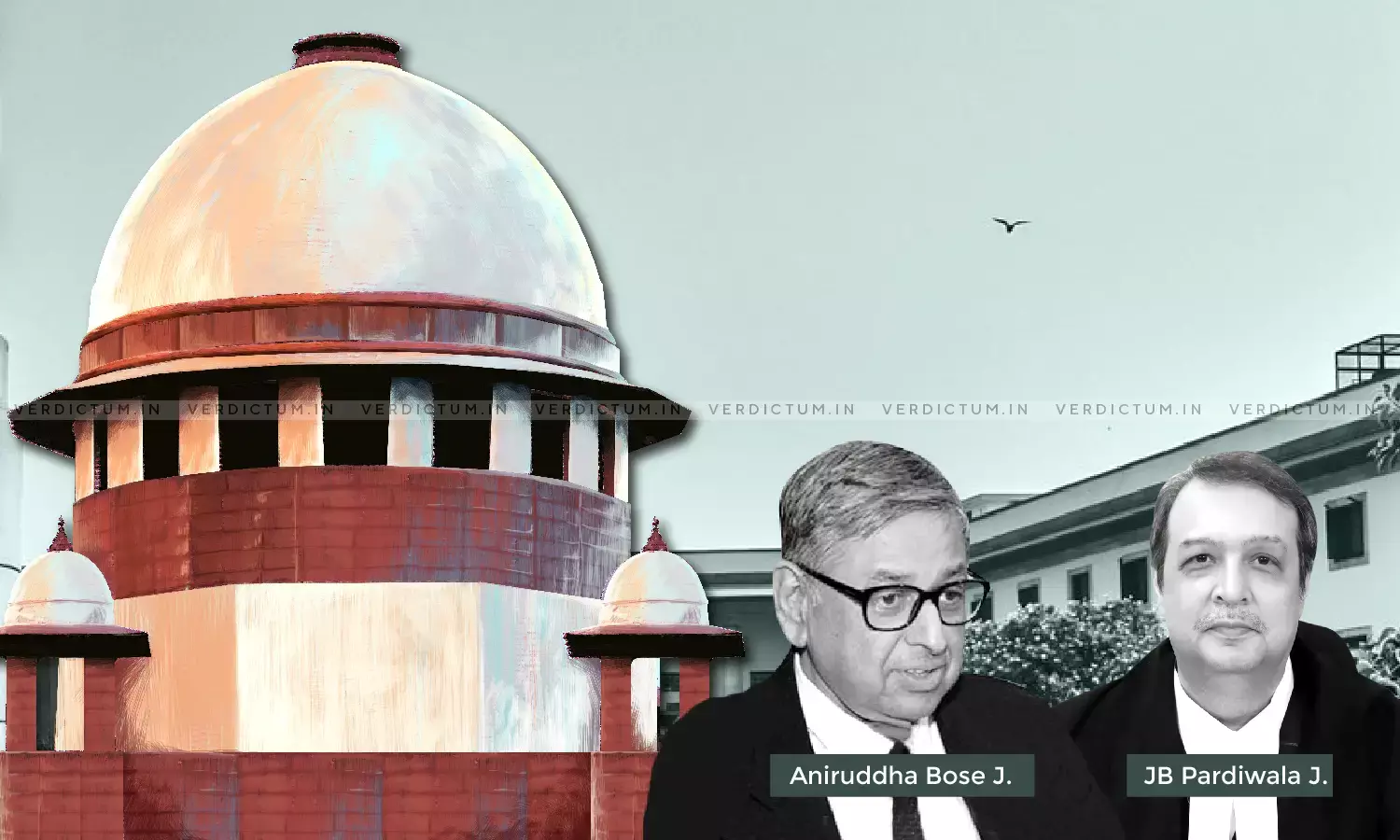Delay In Applying For Amendment Is No Ground To Disallow Prayer: SC Lays Down Principles On Amendment Of Plaint
The Supreme Court has observed that mere delay in applying for amendment of pleadings would not be a ground for rejecting the amendment.
"Delay in applying for amendment alone is not a ground to disallow the prayer. Where the aspect of delay is arguable, the prayer for amendment could be allowed and the issue of limitation framed separately for decision.", the Bench of Justice Aniruddha Bose and Justice JB Pardiwala observed.
The Court was adjudicating upon an appeal by Life Insurance Corporation of India challenging the Order of Bombay High Court permitting the plaintiffs-respondents herein to amend the plaint seeking to enhance the amount towards the alternative claim for damages.
Advocate Aakarsh Kamra appeared for the appellants whereas Advocate E. C. Agrawala appeared for the respondents.
While laying down the principles applicable to amendment of pleadings under Order VI Rule 17 of Civil Procedure Code, the bench held that all amendments are to be allowed which are necessary for determining the real question in controversy provided it does not cause injustice or prejudice to the other side.
The Court emphasised that if the amendment is sought before commencement of trial, the court is required to be liberal in its approach.
"As such, where the amendment does not result in irreparable prejudice to the opposite party, or divest the opposite party of an advantage which it had secured as a result of an admission by the party seeking amendment, the amendment is required to be allowed. Equally, where the amendment is necessary for the court to effectively adjudicate on the main issues in controversy between the parties, the amendment should be allowed.", the Bench remarked.
The Court further held that the amendment should be permitted if the amendment is required for effective and proper adjudication of the controversy between the parties.
The Court observed that while dealing with a prayer for amendment of pleadings, the court should avoid a hypertechnical approach, and should ordinarily be liberal, especially where the opposite party can be compensated by costs.
The Court held that the prayer for amendment should be allowed if the amendment enables the court to pin-pointedly consider the dispute and would aid in rendering a more satisfactory decision.
The Court emphasized that if the amendment merely sought to introduce an additional or a new approach without introducing a time barred cause of action, the amendment is liable to be allowed even after expiry of limitation.
However, the Court observed that where the amendment changes the nature of the suit or the cause of action, so as to set up an entirely new case, foreign to the case set up in the plaint, the amendment must be disallowed.
In view of the above principles, the Court upheld the Bombay High Court's Order allowing the amendment application filed at the instance of the plaintiffs-respondents.
Cause Title- Life Insurance Corporation of India v. Sanjeev Builders Private Limited & Anr.
Click here to read/download the Judgment












